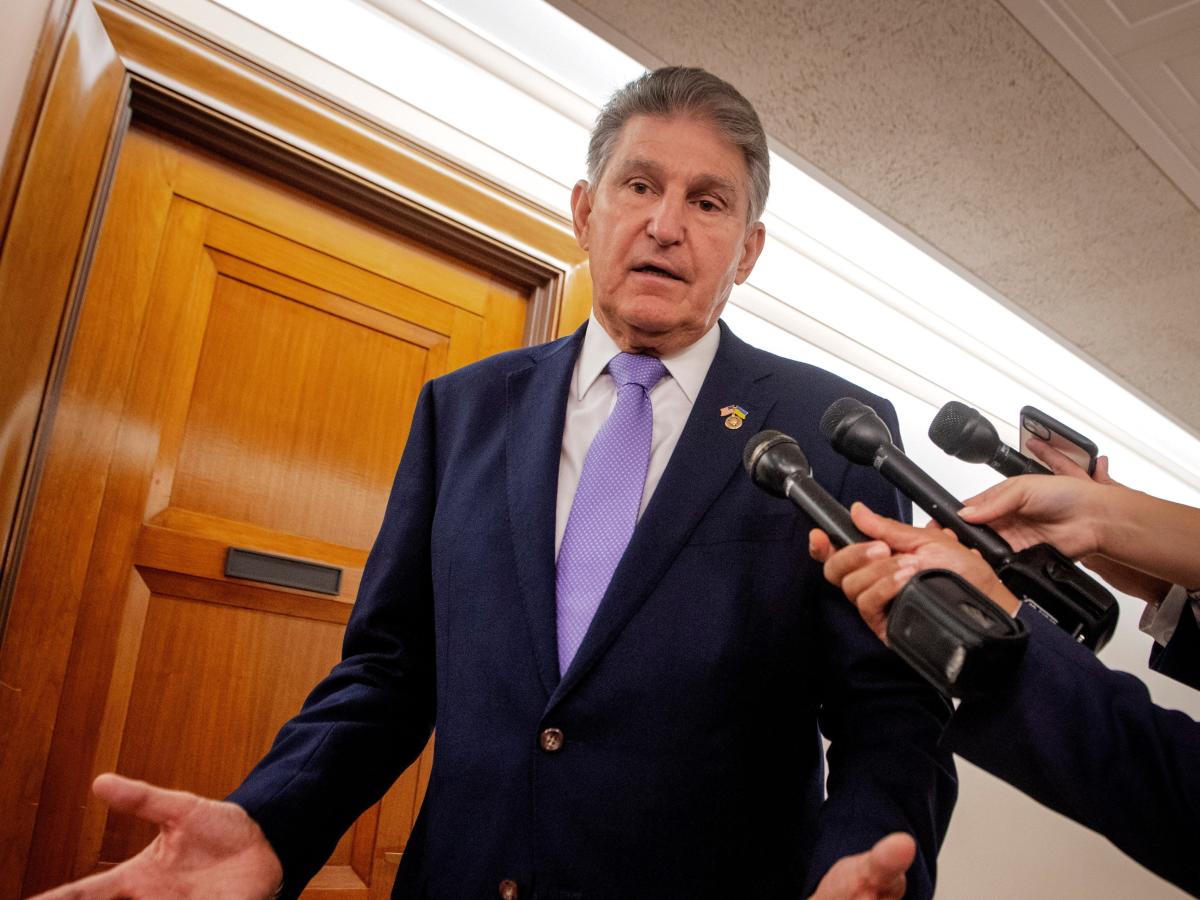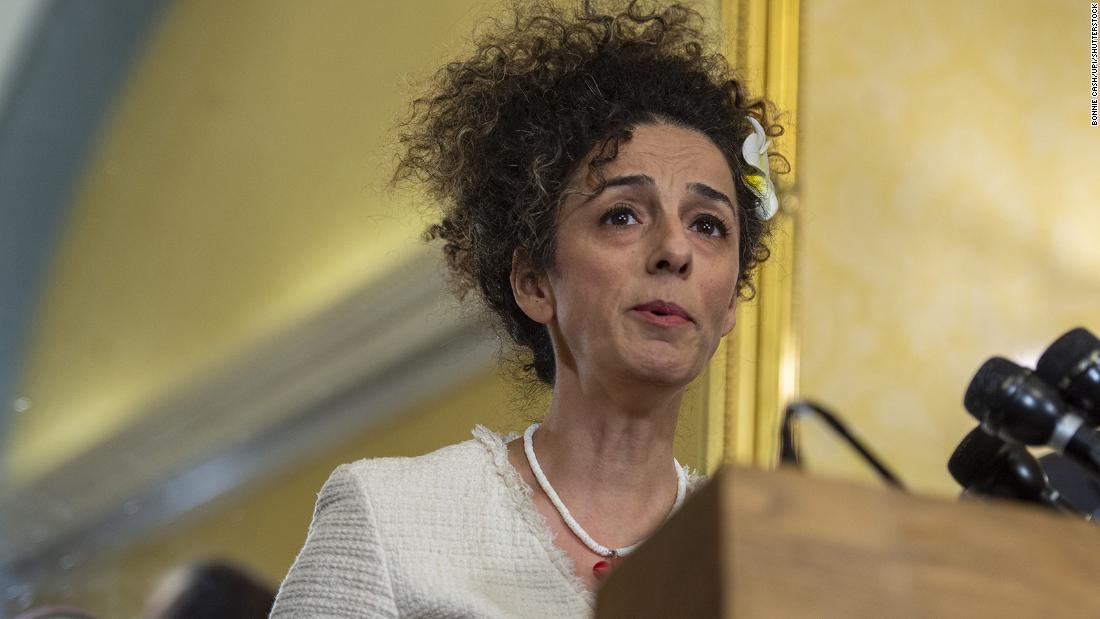After successful the assist of Sen. Joe Manchin III (DW.Va.), Senate Democrats say they are going to move a sweeping invoice as early as subsequent week that, together with local weather and deficit-cutting measures, would give Medicare the ability to barter costs on choose numbers for the costliest medicine for the primary time since Congress handed prescription drug protection for seniors in 2003.
Though restricted in scope and never coming into impact till 2026, the measure, if handed, would signify a big step ahead from the federal government’s hands-off strategy to drug pricing, which has fueled pharmaceutical firm income whereas fueling common outrage. Polls have proven for years that vast majorities of People from each events assist Medicare’s negotiation of drug costs.
“Now, lastly, like each different nation on the earth, we will negotiate with pharmaceutical corporations on costly medicine. It is a actual historic breakthrough for a lot of, a few years,” stated David Mitchell, president and founding father of Sufferers for Reasonably priced Medicine, one of many advocacy teams pushing Congress to behave.
Seniors with excessive drug prices would profit from vital aid from one other a part of the invoice. By 2025, this is able to cap their out-of-pocket bills for Medicare Half D (the pharmacy profit for pharmaceuticals) at $2,000. By 2024, this is able to get rid of a 5% copayment on medicine for catastrophic protection, saving 1000’s of {dollars} for sufferers with critical situations like most cancers who require very costly medicine. These usually are not the controversial components.
The business’s battle over worth is what has drawn essentially the most warmth. Pharmaceutical corporations have lobbied arduous to keep away from something resembling authorities worth controls on their merchandise. They’re set to interrupt data in 2022 with $187 million in lobbying exercise reported to this point, with a military of 1,587 registered lobbyists (57% of whom are former authorities officers), in line with Open Secrets and techniques, a nonprofit group that tracks political spending.
The business argues that worth caps, negotiations or different authorities restrictions on income will undermine the business’s willingness to pursue new improvements. However the Congressional Finances Workplace, an official marker of the laws’s impacts, stated the impression on business innovation could be modest: a discount of 15 medicine in the marketplace out of 1,300 anticipated over 30 years, given the restricted scope of the proposed negotiations.
That hasn’t stopped the business from stepping up dire warnings.
“This invoice will sprint the hope of curing most cancers and different lethal illnesses,” Stephen Ubl, president and CEO of PhRMA, the business’s largest advocacy group, stated Wednesday at a press convention. a discussion board. Confronted with diminishing returns, pharmaceutical corporations would don’t have any incentive to hunt new makes use of for accredited medicine, Ubl stated. He added that “negotiating” is a misnomer within the invoice as a result of “the deck is stacked” in favor of the federal government with a proposed drug gross sales tax if producers refuse the federal government worth. Michelle McMurry-Heath, president and CEO of the Biotechnology Innovation Group, stated in a press launch this month that the laws “might propel us mild years into the darkish age of biomedical analysis.”
The business acquired a public relations increase in the course of the coronavirus pandemic when Pfizer and Moderna rolled out efficient vaccines, utilizing new expertise found in government-funded analysis, in file time.
However frustration has continued to develop in recent times as drug corporations have fought to guard practices that critics have referred to as abusive: Methods to keep away from competitors by paying generic producers to delay their merchandise, racking up a number of patents to broaden monopolies, and rolling out improved variations of medication simply when generic competitors is about to emerge. Democrats and Republicans, together with former President Donald Trump, have denounced the conduct of drug corporations.
“I am unsure we would be right here if the business hadn’t fought smaller reform payments as arduous as they did,” stated College legislation professor Rachel Sachs. from Washington to St. Louis and a nonresident researcher on the Brookings Establishment who research the pharmaceutical business.
Nonetheless, Senate Medicare pricing has main limitations. Negotiated costs will solely apply to a slim class of pricey medicine with out generic competitors, and solely in comparatively small numbers.
The primary negotiated costs would come into impact on 10 medicine in 2026, 15 extra medicine in 2027, 15 extra in 2028 and 20 extra in 2029, in line with an in depth rationalization of its contents by the Kaiser Household Basis. By means of negotiations and different provisions, the invoice is anticipated to equal authorities internet revenues of $288 billion over 10 years.
Moreover, negotiated pricing wouldn’t be allowed till 9 to 13 years after a brand new drug is launched, so the introductory worth of latest medicine will stay unimpeded. Publish-launch, pharmaceutical corporations would face monetary penalties in the event that they proceed to lift costs sooner than the speed of inflation. Pharmaceutical corporations have an incentive to seize as a lot revenue as attainable throughout these early years.
“It’s clear that if this laws is handed, it’s going to drive up drug costs by the point the medicine first hit the market,” funding agency Raymond James wrote in a press release this month. to analyse.
One other level of competition: insulin wouldn’t be lined by the negotiation provisions, as a result of the medicine can have generic competitors. A proposed $35 cap on co-payment for client insulin purchases can be omitted. Teams together with Public Citizen this week continued to press the Senate to reinstate the insulin provisions, which have been in earlier drafts.
A separate bipartisan effort for insulin pushed by the senses. Jeanne Shaheen (DN.H.) and Susan Collins (R-Maine) seem to have a precedent within the Senate’s technique, though the result of this measure stays unsure, stated Peter Maybarduk, director of the Entry to Medicines Undertaking at Public Citizen. Democratic leaders have been contemplating including an insulin provision to the reconciliation invoice.
Public Citizen is amongst those that have pressed Senate Majority Chief Charles E. Schumer (DN.Y.) to revive the insulin provision to the reconciliation invoice, which will not require 60 votes to move. adopted. Insulin overpricing is inflicting a “rationing disaster that has killed a variety of folks in the US and is an pointless reason for struggling, since we’re speaking about 100-year-old medical expertise,” Maybarduk stated. .
#pharmaceutical #business #undergo #uncommon #political #loss #costs



